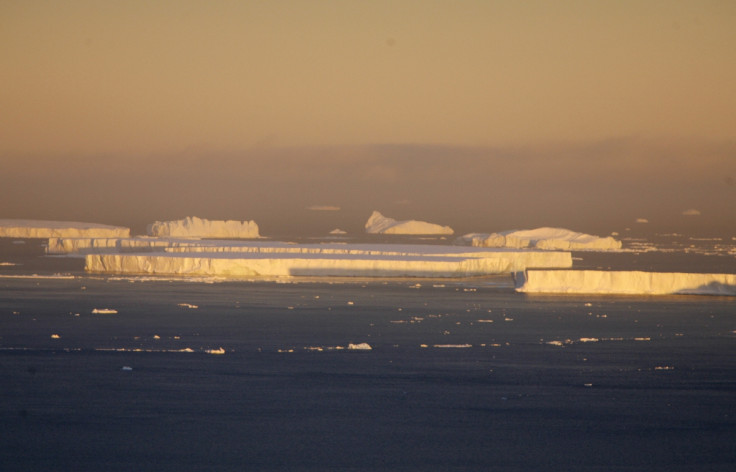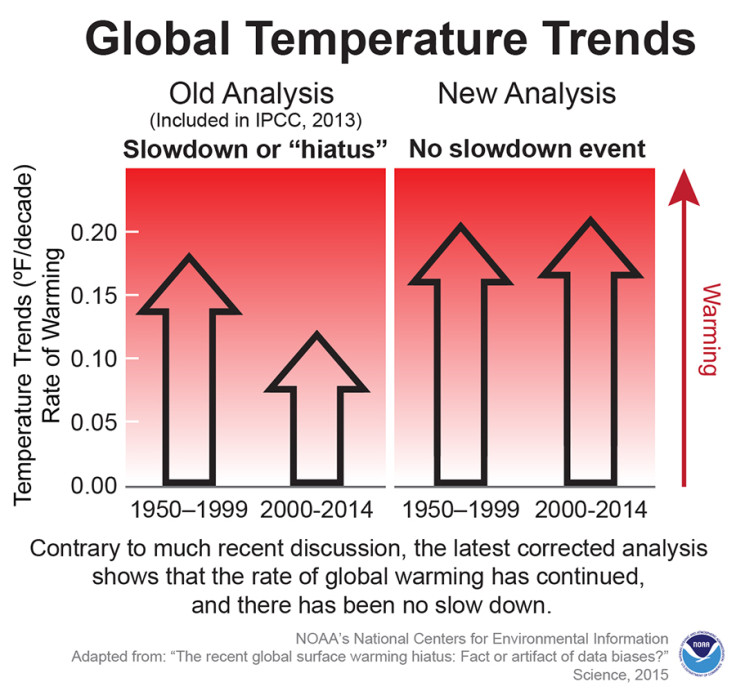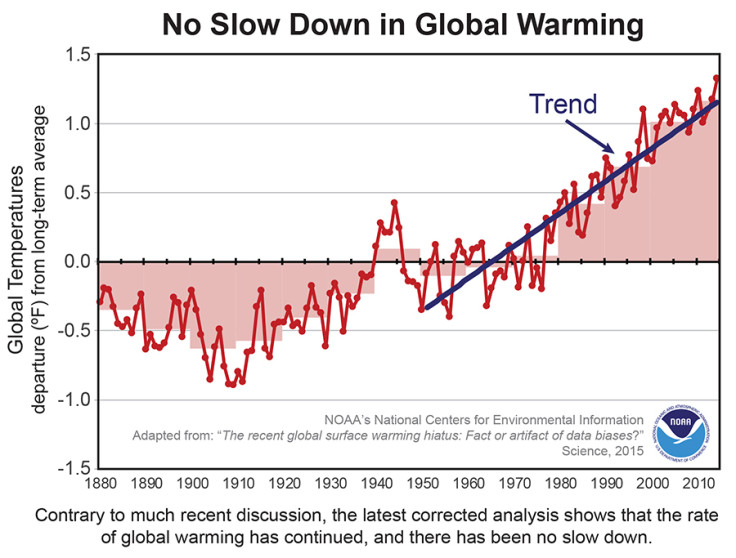Global warming hiatus 'does not exist' according to updated temperatures

The global warming "hiatus" never existed, scientists have claimed after analysing updated global surface temperature data.
The slowdown in global warming is often discussed by scientists and was included in the latest assessment by the Intergovernmental Panel on Climate Change (IPCC).
It refers to a decrease in the rate of warming over the past 25 years that was not predicted by climate scientists. It is often used by climate change deniers as an argument to dispute global warming as a result of manmade emissions.
However, researchers publishing a study in the journal Science have now said surface temperature data disputes the existence of a global warming slowdown. They found no discernible decrease in the rate of warming between the second half of the 20th century and the first part of the 21st century.

The researchers, from the National Oceanographic and Atmospheric Administration (NOAA), used temperature observations from thousands of weather stations across the globe, including those on land, commercial ships and buoys out at sea.
Findings showed temperatures did not slow – instead they showed the rate of warming over the past 15 years was just as fast as that seen in the second half of the 20th century.
"In summary, newly corrected and updated global surface temperature data from NOAA's NCEI do not support the notion of a global warming hiatus," they wrote. "There is no discernable (statistical or otherwise) decrease in the rate of warming between the second half of the 20th century and the first 15 years of the 21st century."
Researchers said that between 1950 and 1999 – a period considered to have significant global warming – is virtually indistinguishable with that seen from 2000 and 2015 (0.113C compared with 0.116C).
They added: "Based on our new analysis, the IPCC's statement of two years ago – that the global surface temperature 'has shown a much smaller increasing linear trend over the past 15 years than over the past 30 to 60 years' – is no longer valid."

Study author Russell S Vose, chief of the Climate Science Division at the NOAA, told IBTimes UK that its findings will help to build a clearer picture of global warming in the future. He said: "Our job is to build datasets, and these datasets are designed to ensure the best possible representation of historical climate conditions across the Earth.
"As for the acceptance of our new results, science is a cumulative and self-correcting process, one that makes progress by building on past work. Our paper is just another step in that process.
"There have been many good papers that have tried to explain the lower rate of warming in the past 15 years. These papers are still equally valid now, and they provide fundamental insights into how the climate system is changing. They also hint at how global surface temperature might have evolved differently (eg, if less heat was being stored in the deep ocean)."
Vose said the biggest surprise was the rate of global warming has been just as fast in the past 15 years as it was over the 50 years previous. He added: "As for the future, we will continue to make improvements to our land and ocean datasets. One obvious focus will be the Arctic and Antarctic, where warming has been rapid but observations have been sparse."
© Copyright IBTimes 2025. All rights reserved.






















